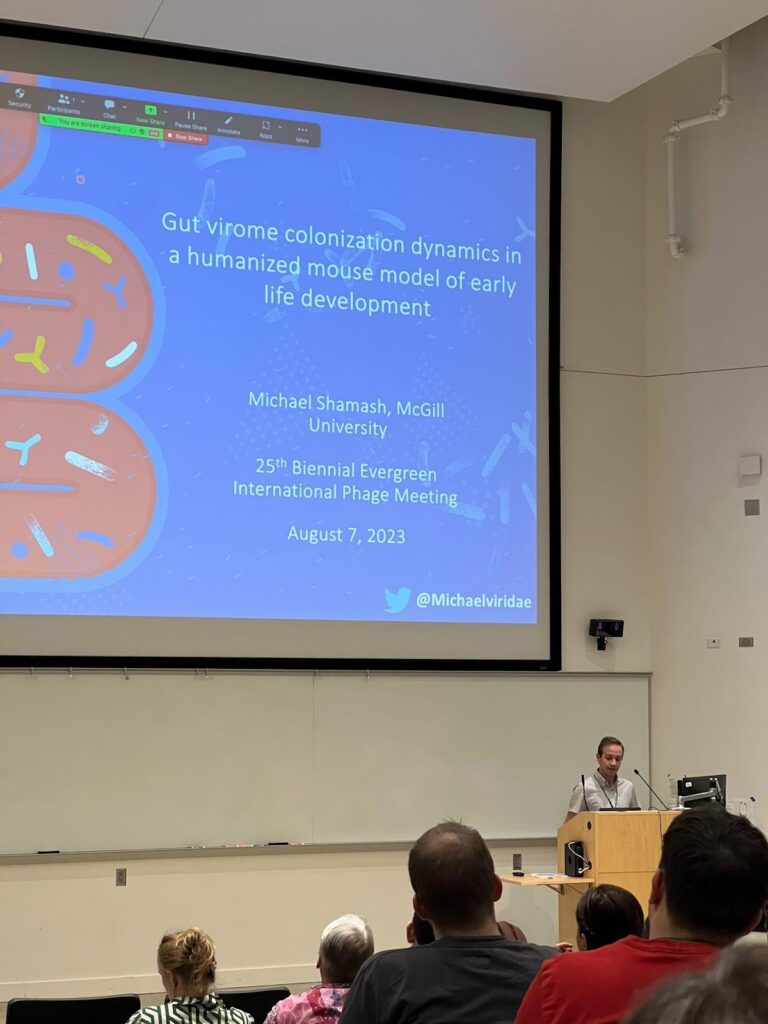By Michael Shamash, a PhD student at McGill University
The picturesque campus of Evergreen State College (Olympia, WA, USA) provided the perfect backdrop for the 25th edition of the biennial Evergreen International Phage Meeting, often referred to as “phage camp” by its attendees. Hosted from August 6 to 11, 2023, this conference brought together a diverse and vibrant community of almost 200 phage researchers from across the globe.
Phages, short for bacteriophages, are viruses that specifically infect bacteria. As natural predators of bacteria, they play a crucial role in ecological balance and have significant implications for various fields, including medicine, agriculture, and biotechnology. Presentations included topics spanning molecular biology, bioinformatics, synthetic biology, and applied phage therapy. I also presented my latest results from my PhD work as an oral presentation as part of the ecology & informatics session.
The hands-on bioinformatics workshop provided participants with the latest methods for analyzing virome sequencing data. As part of the workshop, discussions around the new genome-based taxonomy highlighted the impact of genomics on our understanding of phage diversity, enhancing our ability to characterize novel phages into more meaningful taxonomic ranks.
The phage hunting activity stood out as a hands-on and engaging experience that brought researchers together in a unique way. This activity involved participants venturing into the forests surrounding the Evergreen State College campus to collect environmental samples in search of bacteriophages. Attendees explored various outdoor locations, from soil patches to water sources. This activity not only added an element of excitement to the conference but also underscored the importance of biodiversity and the ubiquity of bacteriophages in our environment. At the end of the meeting, attendees were provided with an aliquot of concentrated sample filtrate to screen for phages in their own labs.


As a first-time attendee at an international conference, the value of networking extended beyond the immediate exchange of scientific insights. It offered a chance to build relationships with professionals who share a passion for phage research, creating a network that could prove instrumental for future collaborations.
Attending the meeting was made possible for me through the generous support of the QCBS excellence award, allowing me to delve into the latest developments in the world of phage research.


About the author: Michael Shamash is a PhD student in the lab of Dr. Corinne Maurice, in the Department of Microbiology & Immunology at McGill University. His research focuses on the development of the infant gut microbiota, where he is exploring the potential of applying fecal virome transplants to alter microbial succession during early life.

0 Comments